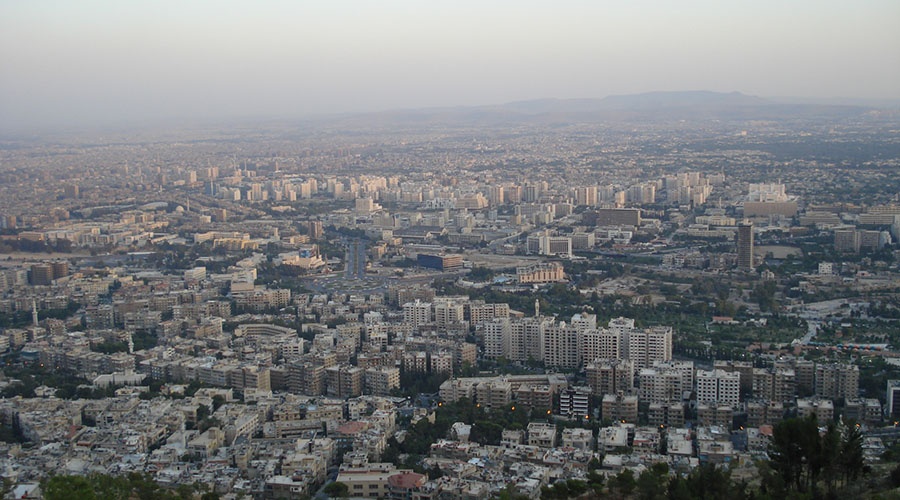Code your way up: Syrian startups teach code in Arabic

As millions of Syrians fleeing a brutal war struggle to integrate into new countries, one barrier stands out above the rest: language.
For Syrian tech enthusiasts looking to enter a more globalized workforce, they are forced to learn not one, but two new languages: English and coding.
To aid in the effort and ease the challenge, Damascus-based startups Remmaz and Bitcode launched interactive online coding courses in Arabic. Remmaz targets university students while BitCode targets children ages 7 to 13.
“There is a boom in the demand for programmers and developers globally,” Muhammad Sultan, cofounder of Remmaz, told Wamda. “And Syria will have huge potential growth once the crisis is over. Equipping youth with the right skills will help integrate them into the workforce.”
Launched in April 2015, Remmaz offers an Arabic coding course in the basics of web development which includes both coding languages HTML and CSS. They translate almost every coding terminology from English into Arabic when explaining how to write instructions, syntax and other coding elements (although the coding itself is still done in English). Thus far, they have 5300 active users.
“Education in Syria is still very outdated compared to the modern approach that uses analytical and critical thinking skills,” said BitCode founder Tarek Sheikh Al Shabab (yes, his real name). “They are also weak in English, which means they can only take the kind of courses we’re offering in Arabic.”
A timeline of the startups
Sultan, Sheikh Al Shabab, and Leen Darwish were the initial cofounders of Remmaz in early 2014, before the product was launched. They met in 2011 as volunteer teachers at Wikilogia, a Syrian NGO established by the Syrian Computing Society with the aim of making open-sourced learning available throughout the country. Sheikh Al Shabab taught robotics and hardware, while Darwish taught coding.
“We were overwhelmed with the waiting list on all courses in Wikilogia,” Darwish said. “Classes would only accommodate about 20 to 25 students at the time, and the teaching was not very interactive.”
In an attempt to make the teaching process more automated and accessible to a wider audience, Remmaz was born. It was inspired by coding programs in the US that integrate interactive learning to users studying code, such as Codeacademy.
In 2014, Remmaz was accepted into Syria’s ICT incubator.
“There was so much to do after we got accepted,” Darwish said. “We were mainly concerned with testing the market and building our business model.”
This process included a lengthy survey for 2,500 participants, with 1,000 participants coming from the engineering department of the University of Damascus.
“When more than 75 percent of participants said that they prefer to learn coding in Arabic than in English, we knew we were right in our idea,” Sultan said.

Finally, the long hours they had spent translating online coding tutorials to Arabic when they were volunteer instructors in Wikilogia came in handy.
“In Wikilogia, all volunteers would find online coding tutorials and translate them to Arabic using Amara,” said Darwish. “So that was really helpful for us to have the terminology ready at our hands.”
Remmaz and BitCode are not the only ones to realize the demand for Arabic content in technology. Daraty, Loujee and Atadiat are all hardware startups that provide their users with Arabic-enabled services or content. Wikilogia also helped pave the way for this type of translation through its Facebook group that allow students to help each other find the right technical terminologies in Arabic from English.
BitCode is born
In 2014, Sheikh al Shabab left Remmaz and founded BitCode with the help of a freelance developer.
Both Remmaz and Bitcode were winners of the Startup Track at this year’s Jusoor Entrepreneurship competition, each equally splitting the $15,000 award, helping them to cover operational costs.
Sheikh al Shabab was determined to get the best possible training for running a startup, setting his sights on Jordanian accelerator Oasis500. “Jusoor was offering the chance to join an Oasis500 bootcamp in 2015 through their ideathon section, and I was determined to get in,” he said.
His efforts proved fruitful as he and nine other Syrian startups joined Oasis500 for a 20-day bootcamp in Beirut Digital District (BDD).

The online payment challenge
One year later, BitCode was unexpectedly halted. Its platform was entirely blocked when Sheikh al Shabab tried to purchase an item from abroad, using his own local server, a big no-no for Syrian nationals. “The purchase was tracked to be from Syria, and my server-on which I built BitCode- was completely deactivated,” Sheikh Al Shabab said.
“The whole platform just shut down and was basically deactivated three months ago” Sheikh Al Shabab said. “We were inactive for three months, this was completely out of the blue and very difficult.” He has now bought a new IP address for his website and is hoping to attract users again.He had just bought a new IP address for his website and was working on attracting users again.
Credit card usage is very limited in Syria and sometimes completely banned.
Remmaz’s current cofounders are now also contemplating a work-around to enable accepting online payments to a Syrian bank account, as neither they nor Bitcode have made any revenue yet.
“We plan to offer premium courses in Javascript and other languages, and we plan to charge for those features,” Sultan said.
Remmaz plans to accept online payment from users outside of Syria through partnering with intermediary companies that have bank accounts abroad. As for Syrian users, Darwish and Sultan will accept cash payments in their offices in ICT incubator.
’We have to try very hard to solve this issue,” Sultan said. “We might register our company in Beirut, or Dubai... we are hoping for the best.”


